Dr.Bharathi Mahadevaiah is the winner of the Silver award for much appreciated cases in the DR Pronto Esthetic Challenge 2, 2021-2022
Introduction
Dental composites have acquired an unmatchable level of popularity in the world of direct restorative materials in today’s era of dentistry. The two main characteristics of composites include esthetic properties and bonding to the tooth structure. The major drawback of traditional composite is bio mineralization.
Numerous research for an esthetic material with good physical properties has brought us a step closer to the resin composites with new filler designs, a change in the organic resin component along with fluoride release. The material that cumulates the advantages of the composites and GICs. To make it true in the sense of the term, a new bioactive material Activa™ Pronto (Pulpdent®, USA) has been introduced. The present case report has utilized this material to treat the deep class III caries.
Activa™ mimics the physical and chemical properties of natural teeth by combining the strength and esthetics of composites with all the benefits of glass ionomers. The key components of Activa are:
- patented bioactive ionic resin
- patented rubberized resin and
- bioactive ionomer glass.
Bioactive ionic resin is moisture tolerant with high release and recharge of calcium, phosphate, and fluoride ions.
Rubberized resin is extremely tough and durable and mimics the physical properties of the tooth.
Bioactive ionomer glass bonds to the tooth and has a high fluoride release. Hence, it has a wide array of indication right from conventional Class I, Class II, and Class V caries to the complex carious lesions involving multiple surfaces.
It is also indicated in cases where the isolation is compromised and in patients with high caries index due to its fluoride-releasing properties.
The present case report has utilized this material to treat the deep class III caries.
Case Report
A 22 year old female patient reported to the clinic with the chief complaint of decay in the upper front tooth, and an unsighty smile.
Clinical examination revealed a primary diagnosis of Class III dental caries irt 22 and secondary caries irt 11 21 12.
Investigations done were the cold test and EPT test, both yielded positive response. This confirmed the primary diagnosis.
Material selected was a bio-mimetic restorative material, the Activa™ Pronto composite material.
Pre-operative situation





Operative situation




Post-operative situation




Hence, Activa™ Pronto can be a material of choice in restoring deep carious lesions due to their superior physical and mechanical properties.

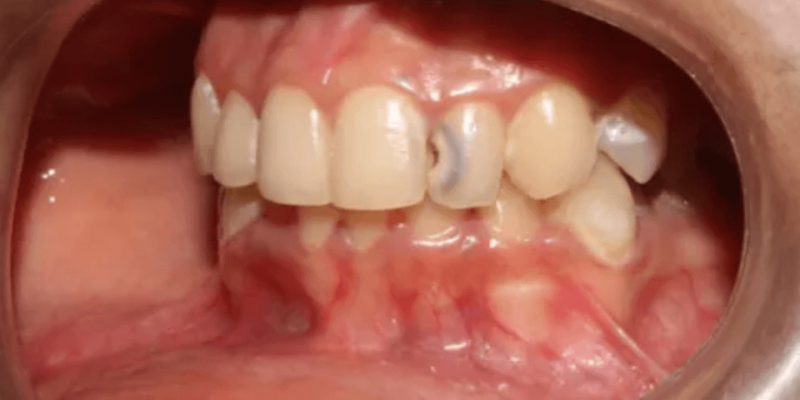



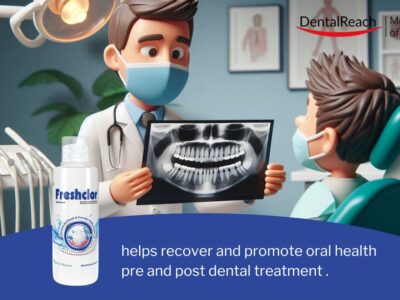
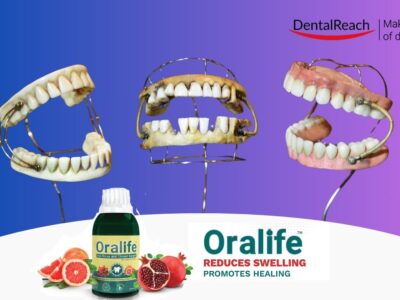
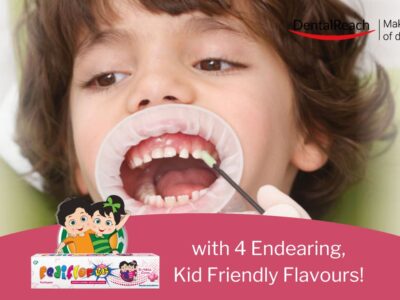











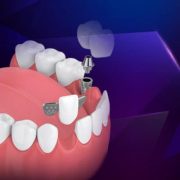
Comments